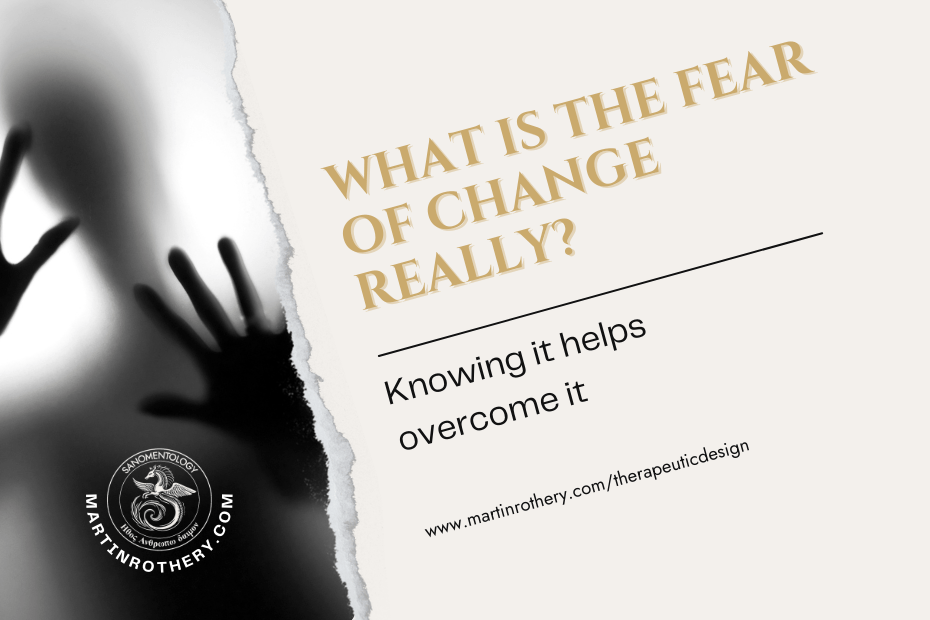What is the fear of change really?
Let’s look at fear first. That paralyzing sensation that makes your heart race and your palms sweat. Many fears are irrational—like those of spiders, clowns, the dark, or flying. Yet, these fears are often easy to overcome.
However, there is a deeper, more subtle, yet more insidious fear that is ingrained into us as individuals and as a society.
The fear of change.
Change is like that unexpected plot twist in your favorite movie—sometimes thrilling, sometimes daunting, but always essential to the story. It’s the force that propels us forward into the future, yet many of us resist it, clinging to the familiar like a cozy blanket on a cold night. This fear of change is a relic from our animalistic ancestry, a primal instinct that once protected us from the unknown dangers of an untamed world. But does this instinct still serve us in our modern era of intelligence and spiritual awareness?
Imagine if our reluctance to embrace change was like refusing to upgrade our smartphones. We’d miss out on all the new features, the faster speeds, the better selfies! Our fear is an outdated response that no longer aligns with our evolved understanding of the world. Intelligence should empower us to anticipate and adapt to change, while our spiritual nature can guide us to trust in the flow of life and the growth that comes with transformation.
Resistance to change is like trying to stop a river with a teacup—futile and counterproductive. It can stagnate societies, preventing the adoption of new ideas and technologies that could lead to advancements in various fields. On a personal level, fear can paralyze us, hindering our ability to solve problems and reach our full potential. We suffer our pains, our anxieties, and our lack of fulfillment in life because of this fear. It’s as if we are standing at the edge of a precipice, knowing we need to leap to reach the other side, yet our feet remain rooted in place by the tendrils of trepidation.
But what if we could shed this fear? Imagine a society that welcomes change with open arms, one that sees the potential for improvement and innovation in every new proposal. Imagine if you could view change not as a threat but as an opportunity for self-discovery and development. This is the vision of a world unshackled by the chains of fear, a world where progression is the norm, and stagnation is but a distant memory.
To reach this utopia, we must first acknowledge the role that fear plays in our lives. We must understand its origins and recognize when it’s holding us back. Only then can we begin the process of overcoming it, of retraining our minds and hearts to see change as a companion on our journey rather than an adversary.
The path to embracing change is not an easy one. It requires courage, determination, and a willingness to step into the unknown. But the rewards are immeasurable. As we overcome our fears, we unlock new potentials within ourselves and our communities. We can solve our personal problems, move past our issues, and become architects of a future that is ever-evolving, ever-improving, and ever-reaching towards greater heights.
So let us cast off the remnants of our animalistic fears and step boldly into the future. Let us embrace change with the full force of our intelligence and the depth of our spiritual nature. And in doing so, we pave the way for a brighter, more dynamic world—a world where every individual has the chance to realize their full potential, and society can flourish in ways we have yet to imagine. The journey begins with a single step, a step away from fear and towards the endless possibilities that await us in the embrace of change.
And you can take the first step even easier. You can download a free powerful session from the Sanomentology toolbox, one that will help you move forward. Just head to the https://sanomentology.com/free-session-register/ and register.
And remember, if you don’t change, you do not grow. And if you do not grow, then you aren’t really living.

